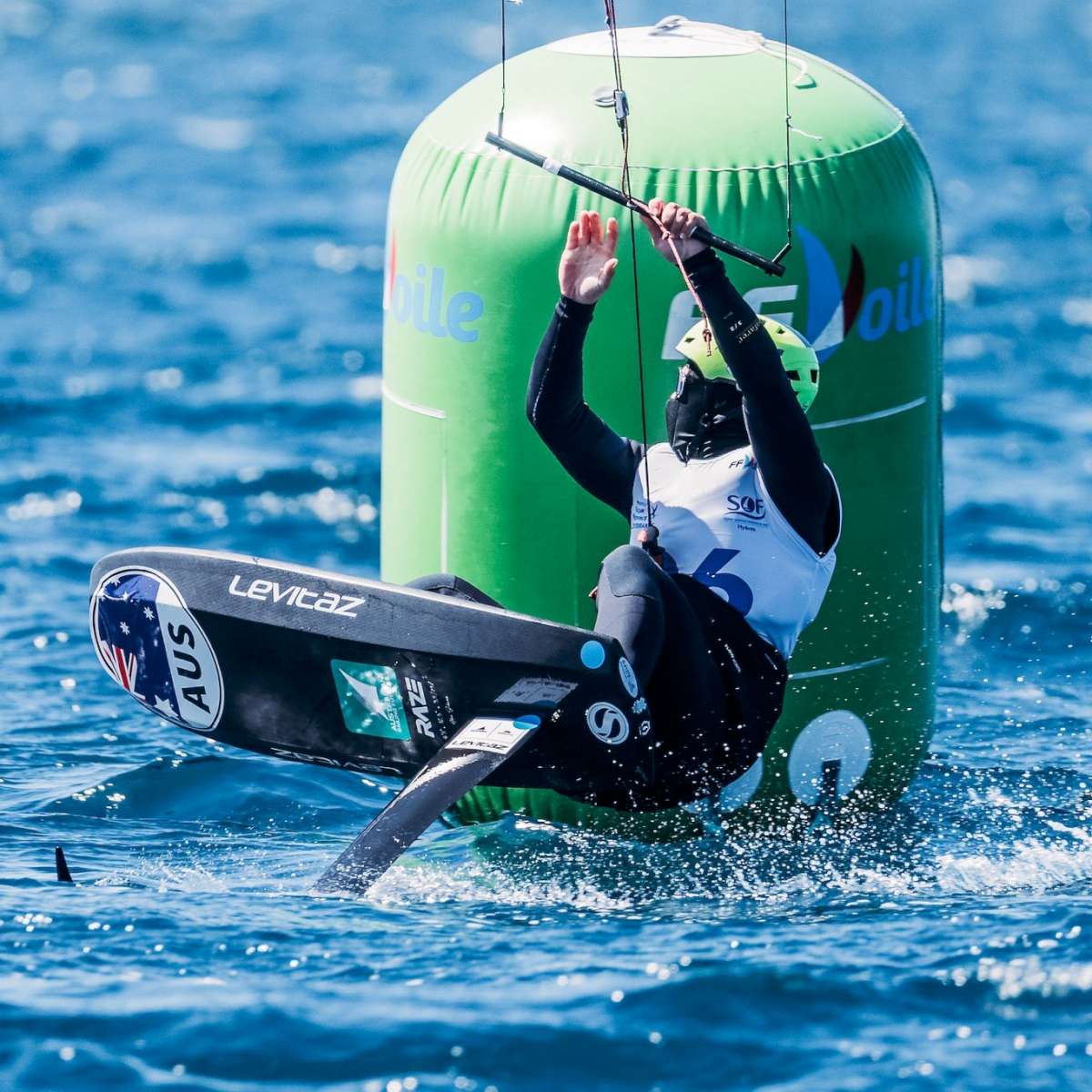After more than 5,500 nautical miles of ocean racing, just 44 seconds separated Quest and Lord Jiminy in one of the closest finishes of the Melbourne to Osaka Yacht Race so far.
Quest, a Marek 43 skippered Rod Gunther and Peter Tardrew, had been close racing with the Class 40 yacht Lord Jiminy, skippered by Kevin Curtis and Dylan Oosterweghel, for days, trading leads and battling it out to the finish.
“The finish was amazing,” said the team from Quest. “We’d been in this tussle with Lord Jiminy for the last two to three days. They were about 3 to 10 nautical miles ahead, and we’d catch up, then they’d pull away again, it just kept going.”
But the final run through Osaka Bay brought Quest within striking distance. “We had more boat speed and closed the gap to about two miles. We were able to run ‘Pinky,’ our Code 0, and that gave us a lift. It was a thrilling finish, we were like the sneaky foxes in the chase.”
As the water flattened, a light breeze filled in “We got a sniff of 6 to 8 knots. The boat started to slide, and we were hand-steering, hand-trimming, doing everything we could to squeeze a little more speed out. We just wanted to finish,” said Tardrew.
“The boat performed beautifully, right to the very end. Tardrew continued, “It felt like she was doing her best for us, and that felt really good.”
After some confusion right at the finish, Lord Jiminy crossed the line 44 seconds ahead of Quest.
“We had the finish line co-ordinates in the plotter although when we heard the crowd cheering, we thought we must have finished” said Oosterweghel. “Kevin and I shook hands, took down the headsail before realising we hadn’t finished.”
Turning around, despite the confusion, they recovered quickly and crossed just ahead of Quest, who came out of the darkness of the night close behind them.
For Dylan, it was the “problem solving and taking on more skippering duties than before. I feel quite chuffed to be in this race. I was honoured when my Dad (Jimmy) and Kevin, whom I’d known since I was very young, asked me to take Dad’s place after being injured in a recent offshore race.”
“My friends used to think Dad was insane sailing to Japan, and the next thing I know is that I’m doing it.”
“We ran a 5 – 4 – 3 watch system, which worked well for us, giving a shorter time at night and longer rest periods earlier in the day” explained Oosterweghel.
“It’s a race where all is going well, and then suddenly there’s absolute chaos. You need to find that perseverance and a way to keep going, as the reality is, where are you going to go?” finished Oosterweghel.
Calling themselves “Zimmerman sailors” this race has proven to both Gunther and Tardrew that they can do it, even if they have a combined age of 143 years and been good friends for most of their lives.
“I think the thing that’s been good for me is to find out that there’s life in the old dog, in a way to just see what your capacity is” explained Tardrew.
Gunther adding “We don’t run around the deck like we used to when we were younger” with the highlight being “just putting it all together and arriving to such a close finish.”
Lord Jiminy and Quest reminded us that it’s not over until you truly hear the finishing horn and that your mind is often the only thing holding you back.
Melbourne Osaka Media
Follow the fleet as they race towards Osaka via the race tracker https://race.bluewatertracks.com/2025-melbourne-osaka-cup-double-handed-race
Learn more about the race and competitors via the Melbourne Osaka Cup website https://melbourneosakacup.com/en/home/
Find us on Facebook: https://www.facebook.com/Osakacup2018/
About the Melbourne Osaka Cup:
Melbourne Osaka Double-Handed Yacht Race: The World’s Longest South-to-North Sailing Event, is about to kick off, attracting both international and local sailing talent.
Competitors sail non-stop and unassisted on their own boats with just two people onboard, navigating four weather systems over 32 to 35 days.
This event provides a unique opportunity for sailors, many of whom are Corinthian (non-professional and self-funded), to embark on the challenge of a lifetime. While major shorthanded races like the Vendée Globe and Transat Jacques Vabre feature professional teams, large shore crews, and significant budgets, the Melbourne Osaka Race stands apart by offering accessibility to sailors who do not rely on extensive support teams.
Interested in seeing more Offshore News?



























